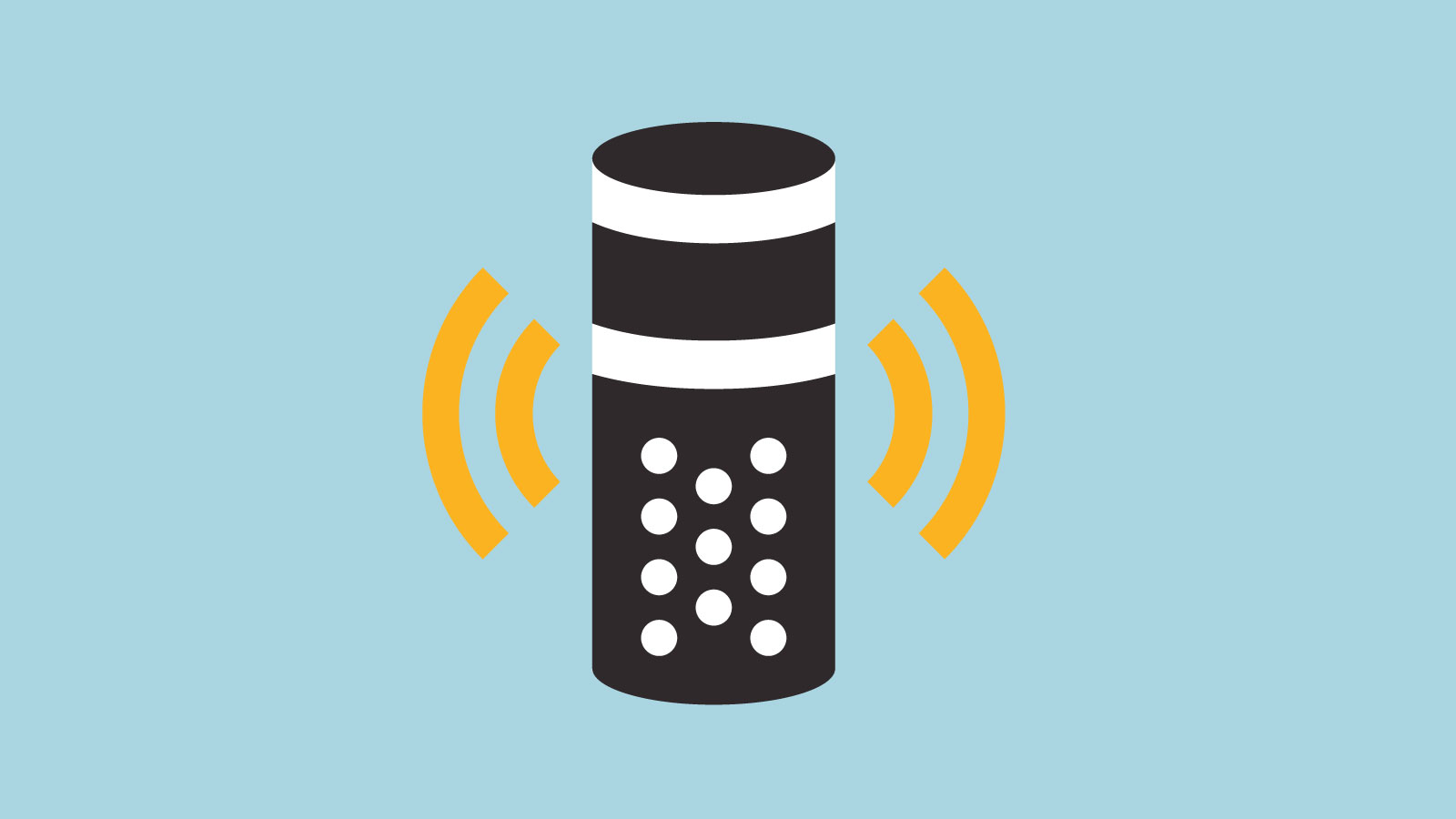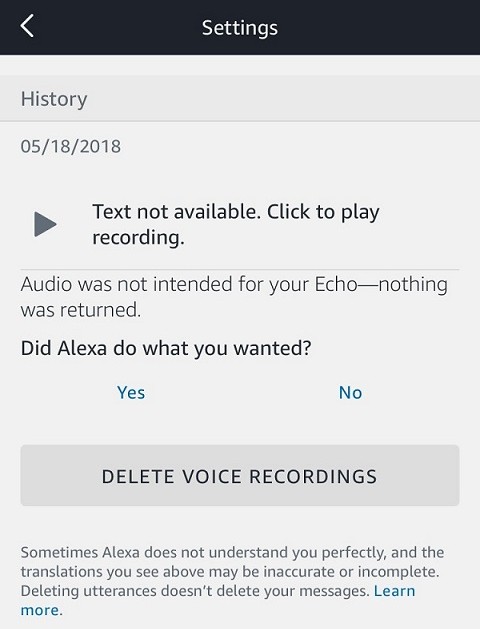Yes, Alexa is recording mundane details of your life, and it’s creepy as hell

Since last year I’ve had a smart speaker in my living room—an Echo Dot. My family uses it mostly to ask Amazon’s digital assistant, Alexa, to play music. But after I saw a report that an Alexa-enabled speaker owned by a family in Portland, Oregon, had recorded a conversation and sent it to a contact, I started wondering: what is it picking up on at my house when we’re not talking to it directly?
So I checked my Alexa history (you can do that through the “settings” portion of the Amazon Alexa smartphone app) to see what kinds of things it recorded without my knowledge.
That’s when the hairs on the back of my neck started to stand up.
Beyond all the things I’ve clearly asked Alexa to do, in the past several months it has also tuned in, frequently several times a day, for no obvious reason. It’s heard me complain to my dad about something work-related, chide my toddler about eating dinner, and talk to my husband—the kinds of normal, everyday things you say at home when you think no one else is listening.
And that’s precisely why it’s terrifying: this sort of mundane chitchat is my mundane chitchat. I invited Alexa into our living room to make it easier to listen to Pandora and occasionally check the weather, not to keep a log of intimate family details or record my kid saying “Mommy, we going car” and forward it to Amazon’s cloud storage.

Computing has marched toward ubiquity for years, and I’ve long been stuck between feeling excited and disturbed by the idea of having gadgets all around me that can track and do all kinds of things. As Amazon, Apple, and Google have ushered in their digital assistants over the past several years, I’ve rolled my eyes at some features and raised my eyebrows at others. But it wasn’t until this week that the reality set in—for me and, I’m guessing, for many other consumers—about what this constant accessibility truly means.
For example: there is a very real trade-off if you want to let technology decide when and what to listen to. Relying on wake words like “Alexa!” or “Hey, Siri” is sometimes wishful thinking. Bits of your private conversations may no longer be ephemeral, and it’s largely outside your control. And your kids may be accidentally triggering the smart speaker to start recording them, too.
I acknowledge my responsibility here as a consumer. I knew the array of seven microphones I had put in the center of my house could hear what we were saying and act on it. I also knew that things we asked Alexa to do were being recorded and sent to Amazon, and that I could play back these recordings and delete them if I wanted to.
But it’s actually quite frustrating to sort through them. You can scroll through months’ worth in the app, but after you select and listen to one, tapping the Back button brings you to the very top of the list again. Deleting hundreds of rogue recordings one by one in this way would take me a very long time. I could delete everything, including the legitimate recordings, in one go, but Amazon warns that this will make Alexa work less well, so of course I’m unlikely to do it.
I haven’t yet decided if Alexa will be leaving our home; I’m going to talk it over with my family first. But you can bet the Echo Dot’s microphone will be muted while we discuss it.
Deep Dive
Artificial intelligence
Large language models can do jaw-dropping things. But nobody knows exactly why.
And that's a problem. Figuring it out is one of the biggest scientific puzzles of our time and a crucial step towards controlling more powerful future models.
Google DeepMind’s new generative model makes Super Mario–like games from scratch
Genie learns how to control games by watching hours and hours of video. It could help train next-gen robots too.
What’s next for generative video
OpenAI's Sora has raised the bar for AI moviemaking. Here are four things to bear in mind as we wrap our heads around what's coming.
Stay connected
Get the latest updates from
MIT Technology Review
Discover special offers, top stories, upcoming events, and more.